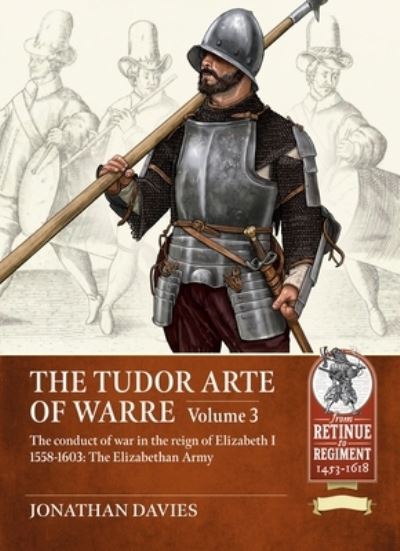
This volume completes my survey of Tudor warfare in a period of transition from bow to gun and from retinue to regiment. The reign of Elizabeth I was first touched and then blighted by war, although most of it passed in a form of peace. Unlike her belligerent father she saw war not as the principal purpose of monarchy but as an unfortunate but occasionally necessary means of achieving sound political and strategic ends. She could gain little personally from war as she was excluded from direct participation in it. Nonetheless she did try and often failed to command from afar. Until 1585 she faced the problem of Queen Mary, a Catholic claimant to her throne whose existence threatened internal peace and greatly complicated matters abroad. Elizabeth was fearful of all her near neighbours as they could so easily unsettle her kingdom and its recent religious settlement. On her accession she tried to take advantage of crises in Scotland and France and for the first time experienced the gap between what her military men would promise and what they could deliver. Determined as she was to maintain domestic peace, the Northern rebellion of 1569 made clear that England's military preparedness was wholly inadequate. Thus began a long project to make widespread military service managed by the government, especially as after 1585 more and more men were sent for service abroad. The Anglo-Spanish war was at least in part the consequence of her efforts to avoid this disastrous confrontation. Once committed she intervened either when England was directly threatened or when she was convinced that she could gain a significant strategic advantage. The many expeditions she facilitated were invariably badly managed and rarely achieved their potential. I will address the criticisms that she was inconsistent, mean and interfering and the cause of the many failures that overtook her armies. I am in agreement with Christopher Haigh when he points out that: 'when [her courtiers] were given military command, when they were sent overseas with the power of the Queen's commission, they forgot their obedience-they even forgot their orders-and they strutted battlefield and poop as independent leaders.' I give considerable space to the Nine Years War in Ireland because it was of central importance to Elizabeth and the military establishment. It involved a number of key battles as well as developments in both strategy and tactics that have in the past been overlooked. The recruitment, training, tactics and logistical aspects of Elizabeth's armies are also discussed in some detail. In her reign almost all the last vestiges of a feudal force were dispensed with, as the army underwent a transformation into a national institution. Her army has been subject to as much criticism as her navy to plaudits. Much of that criticism has been unreasonable and I hope in this volume to produce a balanced assessment of the Elizabethan army and its strengths and weaknesses. I will conclude with an overall survey of the Tudor Arte of Warre and how far it had experienced a 'military revolution.'
| ISBN: | 9781804514092 |
| Publication date: | 10th October 2023 |
| Author: | Jonathan Davies |
| Publisher: | Helion & Company |
| Format: | Paperback |
| Pagination: | 456 pages |
| Series: | Retinue to Regiment |
| Genres: |
Military history |